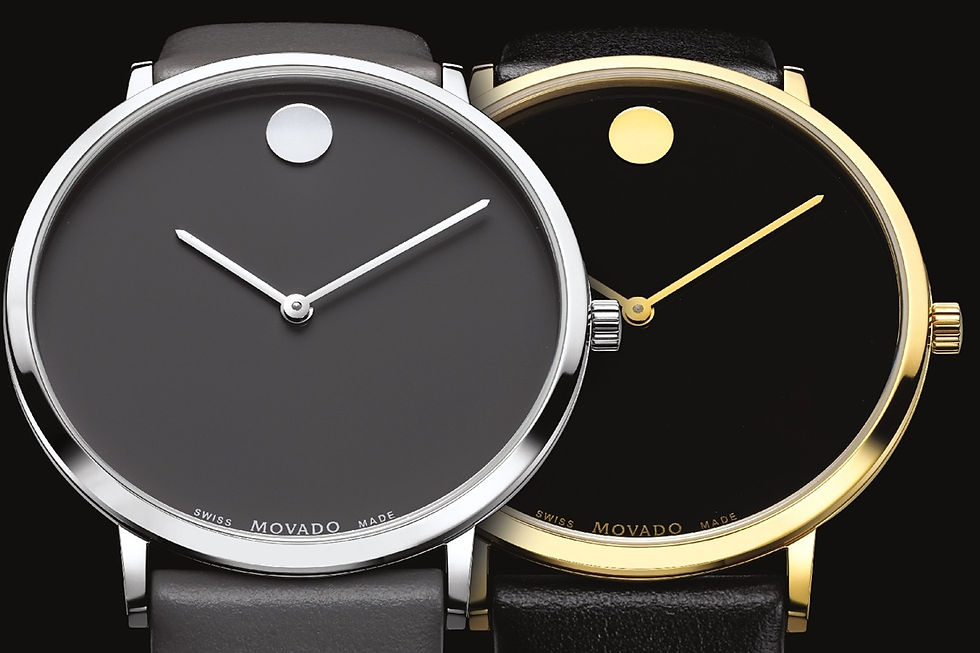CHOICES , CHOICES... ...
- Tick Tock Jewelers
- Nov 9, 2022
- 2 min read
Updated: Aug 23, 2023

There are so many choices when it comes to buying a new watch, but beyond style, price, and features, the question is, “Which is better…..a quartz watch or a mechanical watch?”
The answer is…..it depends. There are pros and cons to each type of watch, so it is important to know how they differ and which is more suited to your needs, preferences, and lifestyle.

Quartz Watches
Pros: Quartz watches are very durable and shock resistant, with fewer moving parts than mechanical watches. They are very accurate, require no winding, and are low maintenance when used properly. Unlike mechanical watches. Quartz watches can feature a larger number of complications (functions) than a mechanical watch, at a more affordable price, and they generally retail for less as they are easy to build and are mass-produced.
Con’s: Quartz watches, although very durable, are not built to last over a longer period of time. In time, their resale value diminishes, with the exception of a few specific collectible models. When it is time to replace the battery in a quartz watch, opening a quartz watch increases the risk of moisture and dust getting into the movement, as well as accidental contact with fragile components. Battery changes should always be done professionally to avoid these risks. Note: A dead battery left in a dormant watch can leak and corrode the movement, so always have dead batteries replaced or removed.
Mechanical Watches
Pros: Mechanical watches feature longevity and durability, and with proper maintenance, have a higher resale value. In general, it is recommended that the movement be professionally serviced and cleaned every 5 to 6 years to maintain proper function and value. Mechanical watches have a long history and heritage of innovation, design, and reliability, as well as a tradition of fine quality, handmade crafting. If a watch is worn, wound, and maintained properly, there should be no disruption in timekeeping, as with a quartz model, and the inconvenience of an often unexpected dead battery.
Con’s: Wind-up mechanical watches must be fully wound daily to keep functioning. Automatic models not only require regular winding but also movement from the wearer to keep running. If one is fairly sedentary in their lifestyle, an automatic model is generally not recommended. Most mechanical watches will run for approximately 40 hours without winding or movement. In terms of accuracy, quartz watches are more accurate, and although considered acceptable, mechanical watches can vary in timekeeping from seconds to minutes over time. Because it is cost-prohibitive, most mechanical watches have fewer complications (functions). Additionally, mechanical watches are more expensive, as their movements have more individual parts and are labor-intensive to manufacture, and regular maintenance and servicing (recommended every 5 to 6 years under normal conditions) can cost several hundred dollars, varying by make and model
Whatever type of watch you choose, always purchase and service watches from an authorized dealer, like Tick Tock Jewelers, who can guide you to make the best selection.



Comments